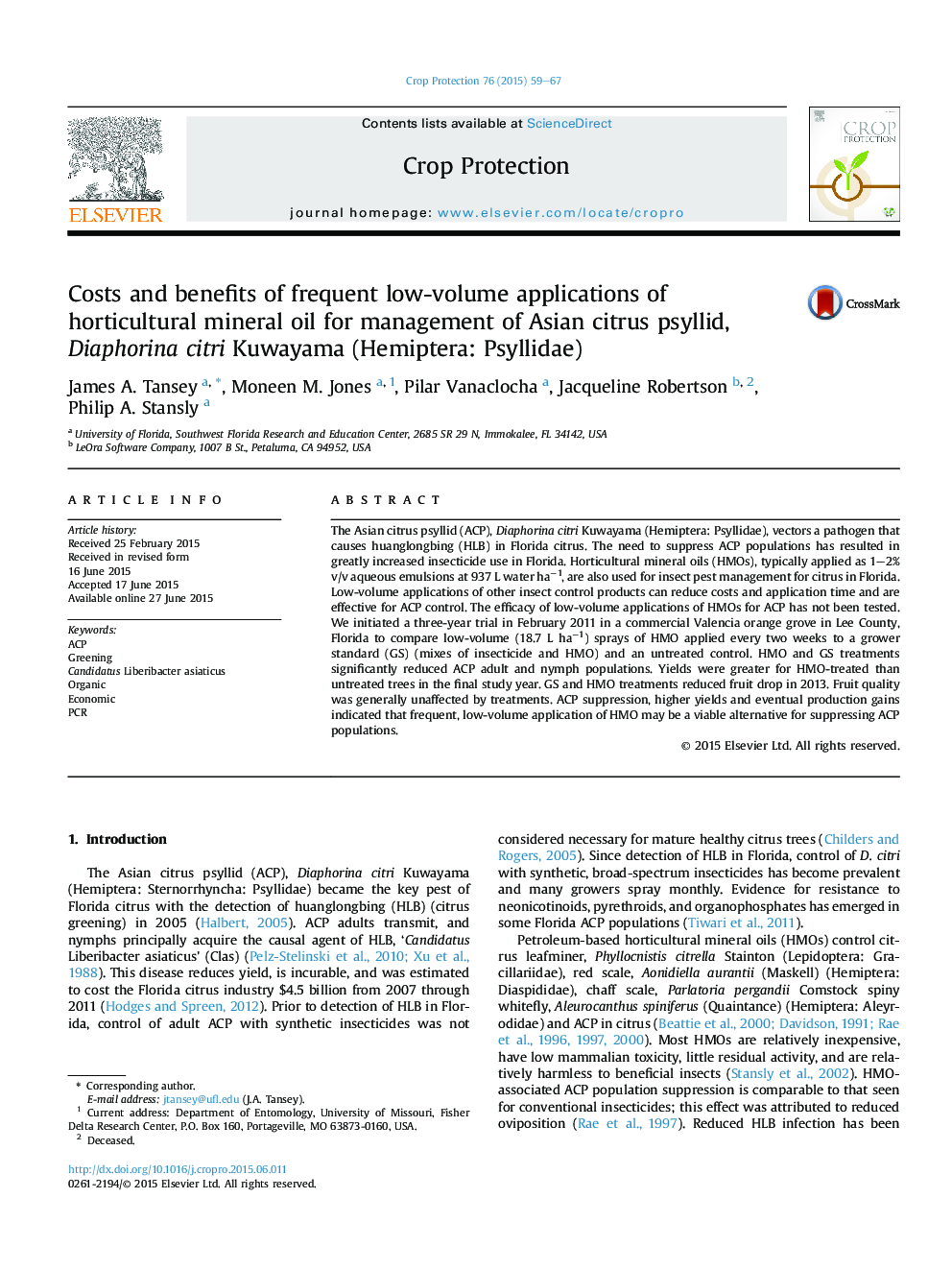| Article ID | Journal | Published Year | Pages | File Type |
|---|---|---|---|---|
| 6373391 | Crop Protection | 2015 | 9 Pages |
â¢We compared efficacies of frequent low-volume horticultural mineral oil (HMO) to mixes of insecticide and HMO for ACP control.â¢Both treatments significantly reduced ACP populations.â¢Yields were greater for HMO-treated than untreated trees in the final study year.â¢Frequent, low-volume HMO may be a viable alternative to insecticides for ACP control.
The Asian citrus psyllid (ACP), Diaphorina citri Kuwayama (Hemiptera: Psyllidae), vectors a pathogen that causes huanglongbing (HLB) in Florida citrus. The need to suppress ACP populations has resulted in greatly increased insecticide use in Florida. Horticultural mineral oils (HMOs), typically applied as 1-2% v/v aqueous emulsions at 937Â L water haâ1, are also used for insect pest management for citrus in Florida. Low-volume applications of other insect control products can reduce costs and application time and are effective for ACP control. The efficacy of low-volume applications of HMOs for ACP has not been tested. We initiated a three-year trial in February 2011 in a commercial Valencia orange grove in Lee County, Florida to compare low-volume (18.7Â LÂ haâ1) sprays of HMO applied every two weeks to a grower standard (GS) (mixes of insecticide and HMO) and an untreated control. HMO and GS treatments significantly reduced ACP adult and nymph populations. Yields were greater for HMO-treated than untreated trees in the final study year. GS and HMO treatments reduced fruit drop in 2013. Fruit quality was generally unaffected by treatments. ACP suppression, higher yields and eventual production gains indicated that frequent, low-volume application of HMO may be a viable alternative for suppressing ACP populations.
